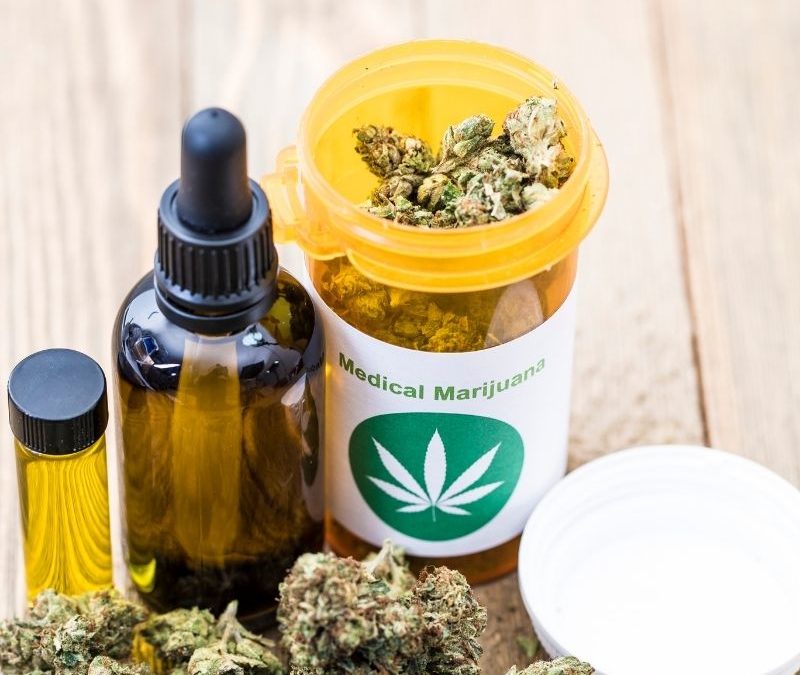Many people enjoy cannabis for a variety of reasons, whether for medicinal benefit or mood enhancement such as relaxation, help with sleeping, or to spur deep thought and creativity. As more states across the country continue to legalize marijuana for medicinal and recreational purposes, this sea of green giving the green light to cannabis is opening eyes to the many benefits derived from this natural plant.
Medical Marijuana Is Legal in Many States
While marijuana is still listed as a Schedule 1 controlled substance by the U.S. Drug Enforcement Administration (DEA) and cannot legally be possessed, prescribed, or sold under federal law, the use of marijuana to treat various medical conditions is legal under the state law of many states. The two most popular cannabinoids derived from the cannabis plant are THC (Tetrahydrocannabinol) and CBD (cannabidiol), each contributing to state legalized medical use in treatment of various conditions.
Marijuana in whole form or crude form such as hemp oil or cannabis oil is not approved by the U.S. Food and Drug Administration, FDA, although according to the American Cancer Society, some man-made pharmaceutical forms of THC are approved by the FDA. Dronabinol, a man-made pharmaceutical form of THC and a man-made cannabinoid drug, Nabilone, are approved to treat certain conditions by the FDA.
Cannabis Historical Significance
The Cannabis sativa plant grows in the wild in warm climates around the world and is cultivated commercially for many purposes. According to an article published by the National Institutes of Health, cannabis has been used for centuries tracing back to ancient times with extensive evidence suggesting its use in what is now Romania dating back more than 5000 years. Additional evidence shows cannabis was used for medicinal purposes around 400 A.D. and was widely used in the United States during the 19th and 20th centuries. Cannabis was first described in the United States Pharmacopoeia in 1850, although federal sale and restriction occurred in 1937 under the Marihuana Tax Act. Legal penalties under federal law were enacted in the 1950s and with the Controlled Substances Act of 1970.
As published in that same NIH article titled Medicinal Cannabis: History, Pharmacology, And Implications for the Acute Care Setting, the use of cannabis for medicinal purposes “represents the revival of a plant with historical significance reemerging in present day health care. As the landscape continues to evolve for medicinal cannabis, healthcare clinics, hospitals long-term care and acute care facilities should consider the implications and explore the feasibility of allowing patient access to the treatment provided with cannabis use. In regard to cannabis use for treatment of cancer symptoms, as published in this same article, a review of 23 randomized, controlled trials concluded that patients who received a cannabis-based product experienced less vomiting and nausea than subjects who received a placebo.
How Marijuana Can Help with Cancer SymptomsÂ
Patients dealing with cancer and chemotherapy cancer treatment commonly experience nausea, vomiting, and loss of appetite. CBD has been shown to help reduce nausea in patients receiving chemotherapy and also help to replenish appetite. Cannabis has been shown to help alleviate symptoms in cancer patients by providing the following benefits:
- THC and CBD can alleviate pain and improve appetite
- Cannabis can improve mood and sleep disorders
- THC is shown to alleviate anguish and help terminal patients with relaxation
- Cannabis can reduce the side effects of certain treatments and medication such as reducing nausea and vomiting
- Cannabis can have anti-inflammatory effects to help relieve pain

While the American Cancer Society has not taken a position on legalization of marijuana and does not advocate medical use, they published that any medical decisions regarding management of symptoms and pain should be made between the patient and their physician, balancing benefit to potential harm. The American Cancer Society does not advocate smoking or vaping due to the health hazards of carcinogens from smoking.
If you are interested in learning more about the medical benefits of cannabis to treat symptoms of your cancer or medical condition, you should speak with your physician and explore the benefits of medical cannabis in states allowing legalization of medical marijuana.
When looking for high-quality cannabis seeds to grow your own marijuana, look to Mosca seeds for cannabis seeds cultivated with the finest in cannabis seed genetics. Mosca seeds offers your favorite strains and is continually developing new cannabis seed strains to harness the amazing qualities this plant provides. Check out our seed bank and explore the benefits that 15 years of cannabis seed genetic expertise provides.
